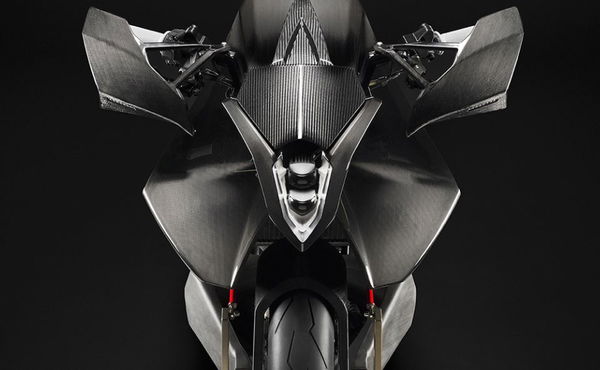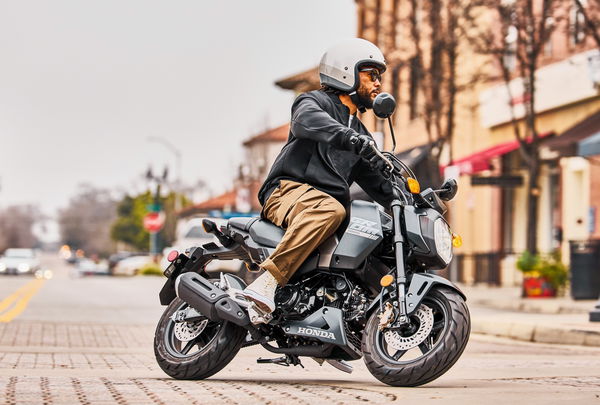Honda looking to ditch front forks?
New patent drawings show that Honda is looking to use Gold Wing-style Hossack front end on multiple new bikes
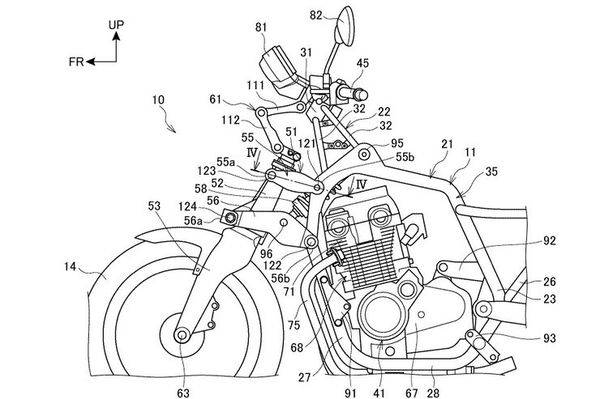
NEW patent filings seem to show that Honda may be considering the Hossack front suspension system for multiple new motorcycles.
The patents show the front suspension set up that Honda already uses on its new Honda Gold Wing models, more commonly known as a Hossack front end – named after the inventor, Norman Hossack – on naked bikes and small capacity scooters.
The bike at the top of the page looks to be using the CB1100 engine and frame, albeit with a new headstock arrangement that allows the innovative suspension system to be used. The other patent filing shows the new arrangement used on a Honda C125 Super Cub.
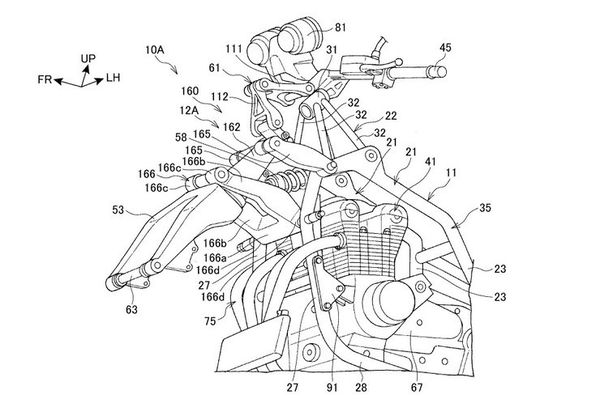
The suspension system Honda are toying with works much like the double-wishbone set up you’d find on any high-performance sportscar. Only in this instance, instead of a hub-carrier and wheel being attached to the end of the wishbones, there is a solid front fork that attaches to the front wheel.
The system is already in use on the latest generation of Honda mega-tourer-cruiser-thingy, the Gold Wing. We rode one last year on some long rides around the UK and even around the Isle of Man during the TT races. It’s a phenomenal set up that provides a magic carpet ride when cruising and road holding and feel like you’d not believe. The only really downside to the system is that it isn’t very elegant looking, with even the Gold Wing hiding away the linkages and engineering behind the large frontal fairing.
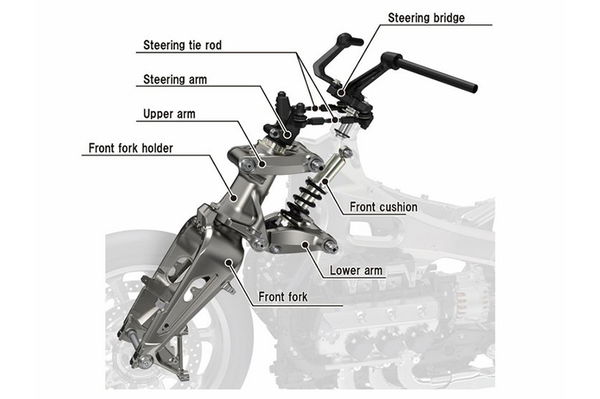
Why is Honda looking at this idea?
There are some advantages of the Hossack system, including saving weight over conventional forks and reducing dive when braking heavily. Like the single-sided front swingarm we see on bikes from Bimota and Vyrus, this type of front end doesn’t transmit as much of the force of deceleration into the suspension system as forks do. Instead, the load is resisted by the vertical fork legs. A bike using this type of front end will also have a more constant wheelbase as the suspension interacts with the road. When braking, a normal bike will dive, making the wheelbase shorter than before, while this can help the bike turn in, the reverse can happen when you get on the power to accelerate.
